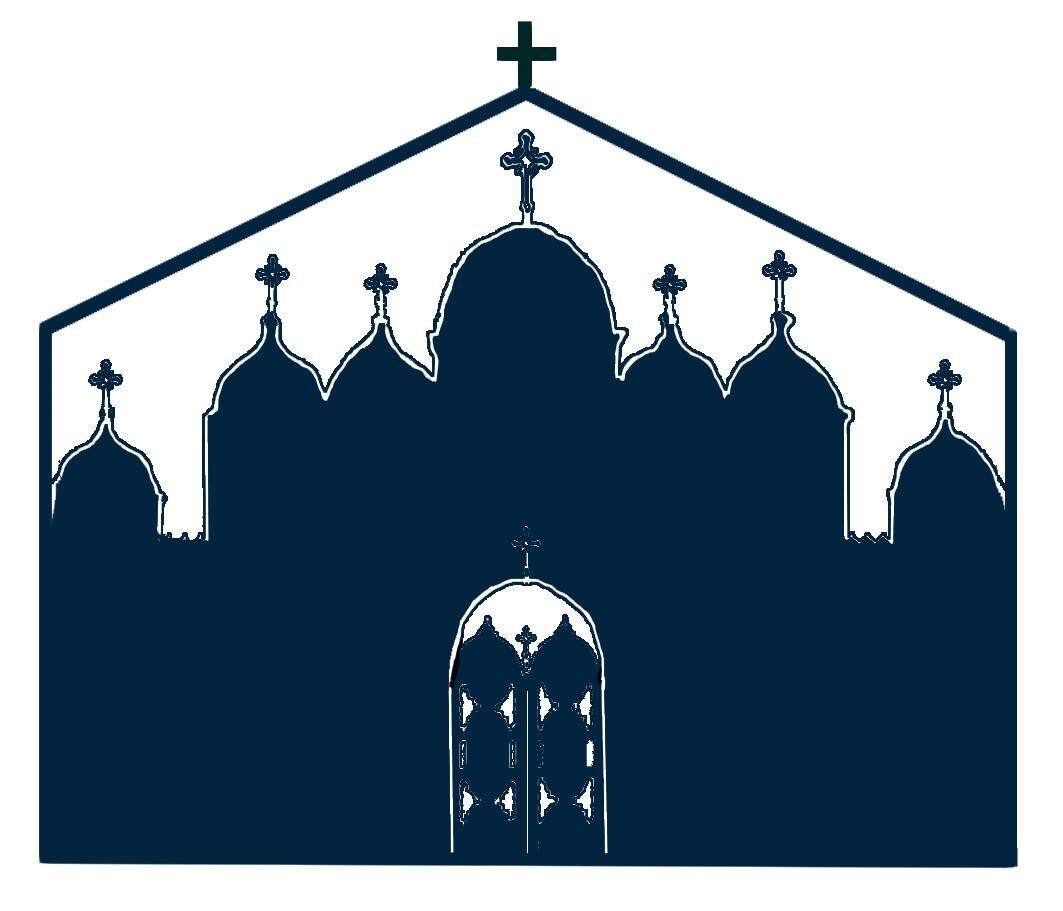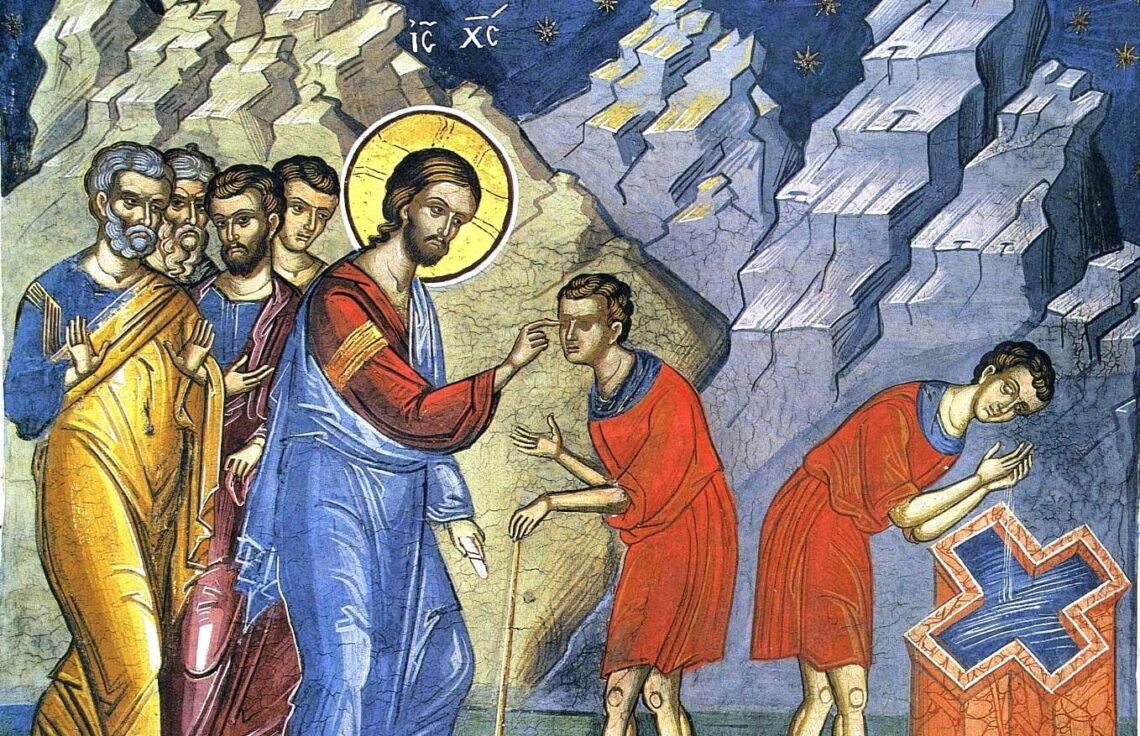2025/07/27 Osaka Church
In the name of the Father, and the Son, and the Holy Spirit
“Jesus, Son of David, have mercy on me.” The Lord touched the eyes of the two blind men who were clinging to Him as they cried out, and restored their light. …What did they see first? …The light that had come in became less dazzling, and they gradually saw Jesus, who was looking warmly at them.
The image of the two blind men wandering about in the darkness, crying out “Have mercy on me,” is also the reality of us humans. We groan, complain, “I’m in pain,” cry, “I’m sad,” and get angry, saying, “I can’t take it anymore.” And the eyes of all of us are fixed on our own suffering. We insist that even though we are suffering so much, no one understands our suffering, no one helps us, and instead everyone bullies us and ignores us.
People are not lonely because they live alone. They are lonely because they live with others.
People do not suffer because they have to live alone. They suffer because they live with others.
In today’s Gospel, the Lord Jesus met “two blind men.” What Christ God witnesses is the reality of human beings: despite being together, they are only able to perceive their being together as a conflict or struggle, and as a result of this tension, they are only interested in themselves.
At the beginning of Genesis, God “created humans in God’s image, male and female.” Adam was alone at first, so God created Eve to be with him. At that time, God said, “It is not good for man to be alone.” There is nothing more good than people living together and having fellowship with each other. However, this “good thing” has ceased to be a good thing. As a result of Adam and Eve leaving God’s love, they lost the knot that bound them to each other, and fellowship between people became not a place of love but a place of fighting, hatred, or cold indifference to one another. People continue to be hurt in fellowship, and eventually, in their pathological self-centeredness, they lose sight of one another, just like the “two blind men.”
Light has shone upon us, who live in such darkness.
When Christ opened the blind mens’ eyes and the light shone upon them, they first found the Lord, and then they found each other. Together with Christ, the Lord God, they once again begin to live in “fellowship” as a good thing. The same thing has begun for us, who were baptized and believed in Christ, the same Christ who had mercy on the two blind men and saved them from loneliness. We find each other’s suffering in each other, and finally, we find in each other that there is the only one who can save people from loneliness: Christ, the love of God. This is the Church. It is the Body of Christ.
Even so, even when our illness is healed, the loss of strength lingers for a while. We are still weak people, together. We will surely make many mistakes. Many sufferings will surely come upon us. We will surely weep in much sorrow.
But when we gather in worship—a worship that makes visible the ‘fellowship’ given to us by God as a good thing—yes, in the Divine Liturgy, where we gather around the Body of Christ, and share it as His Body and Blood, then the joy of fellowship, which cannot be replaced by anything else, lifts us up. That joy strengthens our faith, gives us hope, and urges us toward love for one another.
In the real human relationships within the Church, this might be… hard to believe. But let us believe it. Don’t we sing right after receiving the Holy Eucharist: ‘We have seen the True Light’ (from the hymn of the Divine Liturgy)? We have already seen, even now, the Light of True Life—not only that, we have received in our very bodies the Life of the One who is that Light.

